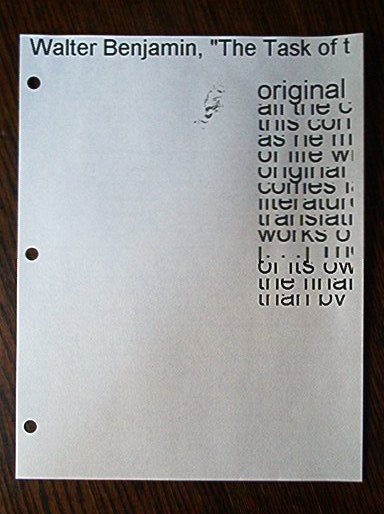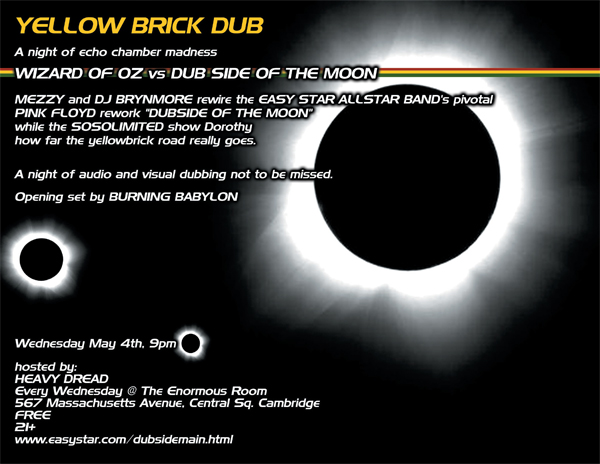
(fortuitous ellipsis meets wishful thinking uptown)
as many of you
may have read last week,
greensleeves--one of the more "major" (got distro?) record labels issuing reggae music today--recently won a lawsuit pitting them against one of "their" artists, the inimitable dub-producer known as
scientist. as you can see
here, greensleeves has at least six titles from scientist in their catalog (and that's just counting the ones with his name on the front).
as
usual, the lawsuit is a little confusing, so let me sum up what i've been able to gather from various
articles (if anyone finds the legal decision online, holler): after greensleeves records licensed a number of tracks from the album
scientist rids the world of the evil curse of the vampires to
rockstar games/
take 2 interactive for use in
grand theft auto III, scientist initiated a suit claiming copyright infringement, arguing that he owned the recording and composition copyrights for the tracks in question. the manhattan district court that heard the case, and the jury that decided it, ruled that greensleeves is the rightful owner and that scientist has no such claim on the rights.
greensleeves' managing director, chris sedgwick, put it all in perspective when he said, "Basically, Scientist was claiming to own copyrights in songs and recordings as a result of being the mixing engineer. Although we always felt these claims were ridiculous, we had to defend ourselves all the way to trial and are delighted to have got the right result."
i'm less than delighted about the result--as is scientist, i'm sure. moreover, i would argue that sedgwick's opinion, and that of the court, is the "ridiculous" one. (big surprise,
eh?)
ripley has discussed the ways that this case brings up recurring debates and conspicuous lacunae regarding ownership/authorship in music--and reggae music in particular. i would like to dig into these questions a little further in an attempt to demonstrate the ridiculousness of the status quo that has been upheld in this case.
let's begin with the question of ownership. this is a tricky question of course, and generally i
don't really believe in ownership anyway, but if we're going to have to work with some concept of ownership in the courts and markets and such, then we need a better definition than "the guy who most recently paid for it." in this case, greensleeves has been declared the owner because they bought the rights from the previous owner,
henry "junjo" lawes. now before i go and slander junjo, let me express my deep appreciation for all the music that he "produced." some of my
favorite reggae tunes of all time are, no doubt, deeply indebted to his significant contributions--i.e., paying for the studio time, paying the musicians (including vocalists and engineers), and, presumably, having some say about the stylistic shape his "productions" would take (e.g., offering general encouragement and feedback in the manner of today's "executive producers"). but when it comes down to it, i really don't see why junjo has more of a claim on these recordings than scientist or tubby or the roots radics or whoever the vocalist may have been (in cases where there are vocals). in fact, it seems to me that junjo has much
less of a claim when we weigh the different contributions to the production of the work. pay shmay.
one thing to acknowledge here is that the jamaican system of copyright and ownership is, like that in the US and many other places, deeply and historically flawed since it has been the "producers," including the
bigmen dem, who have consistently swindled the performers out of their rights to the fruits of their labor. still, what i admire about the jamaican music industry is that it has proceeded generally with a rather enlightened, and loose, conception of ownership, at least as it relates to
common musical materials. it has also, for a long time now, acknowledged the role of the engineer, the studio producer, the man behind the boards, as
crucial to the creative product, even if only in name, and not in deed.
ownership as defined in this case--i.e., the guy who paid for it most recently (irrespective of any contestation of the original terms of ownership)--seems to have little to do with authorship, though these terms seem rather inextricable, especially considering the way that the courts attempt to define such things. authorship as a pre-requisite to ownership is clearly in play here when the managing director at greensleeves insists that giving a "mixing engineer" such rights over a recording is "ridiculous." is it really any more ridiculous to grant ownership/authorship to the guy who recorded, mixed, and manipulated the music in question than to the guy who paid for the session way back when, or to the guys who paid that guy? what is
not ridiculous in this case?
despite being in the reggae business, these greensleeves guys demonstrate a deep ignorance about the way the music works. it is practically a cliche these days to acknowledge the central contributions of dub producers to the music that ends up on record, regardless of whose name is on the label. (just glance at any
overview of electronic music to see the nod towards scratch, tubby, scientist, et al. for bringing studio technology to center stage in music production.) the greensleeves guys' testimony, and the ruling of the court, truly misunderstands the way that music has been made for the last several decades, especially, but not exclusively, in jamaica.
so in some sense, i am seeking to make an argument for the broader recognition of engineers and hands-on producers as central authors in the music-making process (if we really need to demarcate such roles). the role of technology in the recording/production process has increasingly blurred the line between engineer and musician. just watch the indispensible film
tom dowd and the language of music to see and hear firsthand how profoundly important technology and the creativity of producers/engineers are to any modern musical production. for a secondhand perspective, note the kudos heaped upon tom dowd by almost every musician he worked with. in many cases, they note that their music would simply not be the same were it not for dowd's work. (and such acknowledgment is doubly impressive coming from such egos as eric clapton.) that dowd lives and dies in rather humble circumstances, despite having produced dozens of platinum singles and albums, is at once a testament to his character and an indictment of the glaring injustices of the current system.
in another sense, i'm simply sick of the degree to which these cases, and the copyright status quo, demonstrate very little acquaintance with the way that music is made today. i've spoken before about the ways that common practice challenge the rules on the books, and i've expressed hope that younger clerks, lawyers, and judges will start to bring a new common sense to these debates. but i've yet to see that happen. recently, it's been case after case upholding the same old story. i'm arguing for scientist's rights here only because he was trying to work within the system, and to the extent that we can't escape the system, we may as well attempt to challenge and change it. but really, we need a whole new system. this current shitstem has had nuff time to cheat people. time fi bun it dung.
i've got a few nagging questions about this case that i can't address here, but i thought i'd throw them out anyway:
1) why did king jammy's testify against scientist? (is it because he was lucky enough, being a producer/engineer himself, to get his name on the copyrights for the recordings that greensleeves distributes?)
2) why did the grand theft auto people want some classic, early 80s dub to accompany their carjack fantasy? does it accompany a dreadlocked carjacker or something? wouldn't something from, say,
incubus be more appropriate?
3) why didn't they call the case, in the spirit of some seminal scientist works, "scientist vs. the vampires of greensleeves"? (maybe that'll be his next release. i'd buy it, as long as it ain't on greensleeves.)
finally, props to scientist. may you get your due someday.



























